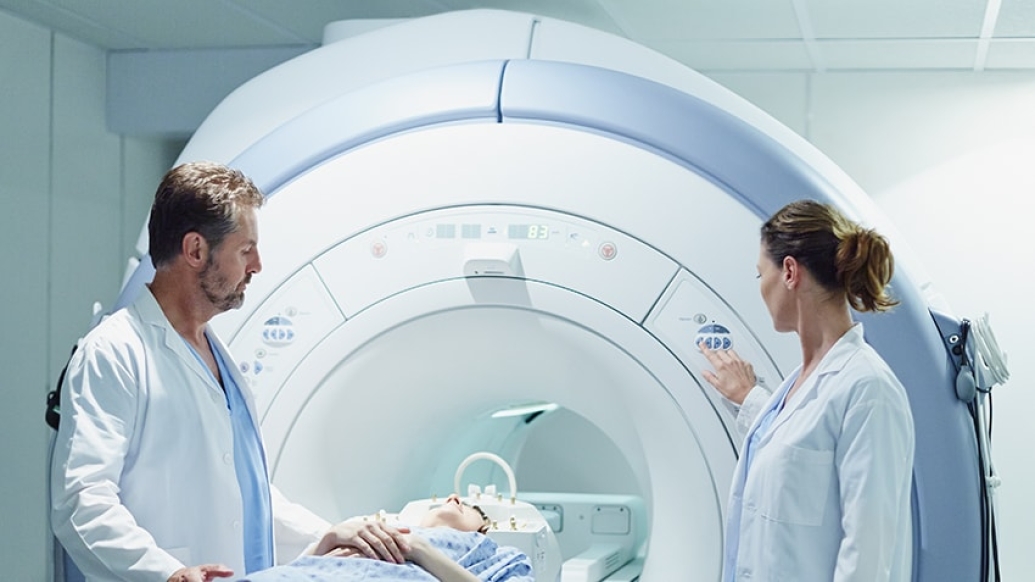A multidisciplinary team at U-M has developed a VR app that simulates what it’s like to undergo an MRI. The app has the potential to alleviate patient anxiety.
7:00 AM
Author |

For many patients, the idea of undergoing an MRI and spending an extended period in an enclosed, narrow space is the stuff of nightmares.
The noninvasive procedure is, however, an extremely useful tool to detect, diagnose and monitor many diseases. Yet patient anxiety is a real hurdle. Some patients require sedation to remain still during the scanning — nervous fidgeting often blurs the images.
LISTEN UP: Add the new Michigan Medicine News Break to your Alexa-enabled device, or subscribe to our daily audio updates on iTunes, Google Play and Stitcher.
Others simply cancel their appointments.
With this in mind, a multidisciplinary University of Michigan team from the Department of Radiology and the Duderstadt Center's Emerging Technologies Group developed a virtual reality app this year to help patients better understand and prepare for the procedure by "experiencing" it from home.
SEE ALSO: Harbaugh Fund Helps Mott Patients Virtually Experience the Big House
"The app allows patients to fully experience the sensation of being inside of a scanner," says Daniel Fessahazion, associate director of the Emerging Technologies Group. "As a patient turns their head or moves their body, they can see the room around them while the system detects their motion and provides them with the illusion that they are inside the MRI."
A one-of-a-kind tool
VR has been used to successfully desensitize patients with phobias for many years by providing them with simulated realities where they can safely learn to tolerate the things that they fear on their own timelines. Inspired by this success, the team hopes applying VR to MRI-related claustrophobia can improve patient care.
"The goal is to decrease their anxiety about the procedure," says Richard K.J. Brown, M.D., a professor of radiology at the University of Michigan who led the project, which was funded by a Patient Education Awards Committee grant.
The experience can stream on a dedicated VR device or a smartphone paired with an inexpensive headset.
The U-M team of researchers — physicians, computer programmers and digital artists — created a virtual scanning room where MRIs take place. The sounds produced by MRI scans were also incorporated to make the VR experience as real as possible.
MORE FROM MICHIGAN: Sign up for our weekly newsletter
"We knew it was important to capture the sounds that actual patients hear during their scans," Brown says. "So we recorded the sounds on-site during a simulation with a real-life MRI machine."
Interestingly, some of the programming tools used to develop the app are the same ones used to create interactive VR video games. The team's digital artist also incorporated complex textures and shading in the tool to enhance the sensation of an enclosed space.
"We have a diverse patient population here at Michigan Medicine, and we want to make sure that all of our patients can benefit from the technology we create," Brown says. "Our team would like to eventually create versions of this tool in several languages, ensuring that all of our patients can benefit from this cutting-edge technology. The future use of this app opens a lot of doors."
To learn more about the VR app, click here.


Explore a variety of health care news & stories by visiting the Health Lab home page for more articles.

Department of Communication at Michigan Medicine
Want top health & research news weekly? Sign up for Health Lab’s newsletters today!





